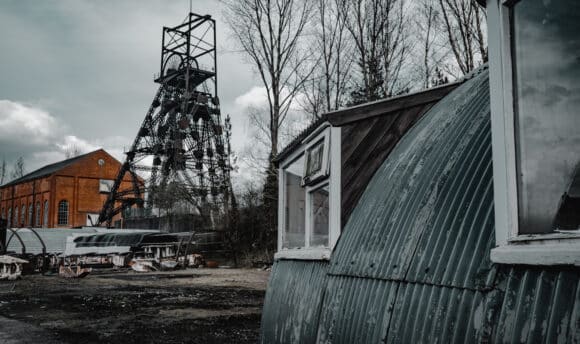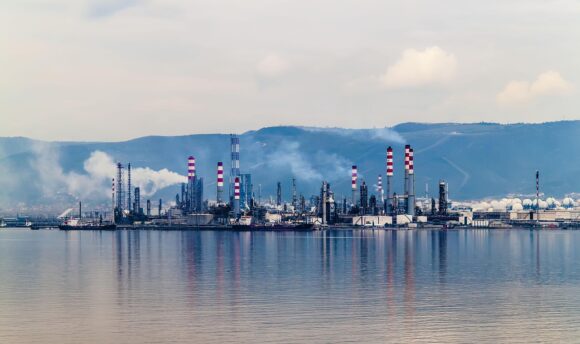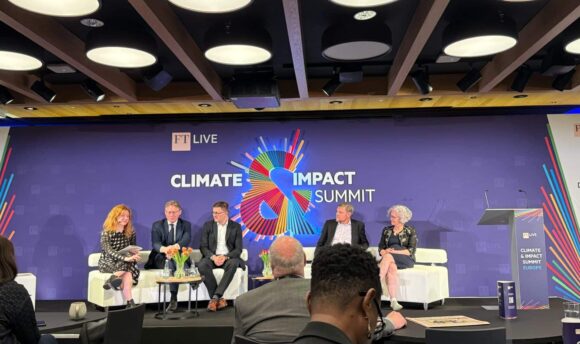Coal is king in Poland.
The industry is so deeply politicised that when Pope Francis called for an end to coal use, the statement was declared anti-Polish – a remarkable stance in one of the most Catholic countries in the world. Experts speaking out about the negative impacts of coal are automatically referred to as ecologists – which unfortunately tends to translate as ideological rather than scientific.
Indeed, anything undermining the state-owned, coal-dependent utilities or questioning the future of coal is automatically labelled as unrealistic and radical. Rapid technological advancements in the energy sector? Just a figment of your imagination.
This also influences the climate change debate. In the mainstream Polish media, climate change either appears in the scientific section or in reference to EU climate and energy policy, portrayed as a fancy and expensive fad of the rich West.
Given these circumstances, it is no surprise that Polish media features little coverage of the changing attitudes of financial markets, major institutional investors, asset owners and (more recently) insurers towards fossil fuels, particularly coal. When these topics are raised, they are addressed from the point of view of the pro-coal government and state-owned companies.
An example of this was the debate around with the European Commission decision on the Polish capacity market earlier this month. The result was a coalition of government and industry working together to design further subsidies to keep coal mining and coal power plants profitable.
Poor air quality is the one area that has provoked widespread criticism of coal burning. However, the discussion centres around the use of coal to heat homes and the health problems people suffer as a result. Climate change takes a back seat.
Much has been said and written about poor air quality in Poland – a pressing issue since 33 of the 50 most polluted cities in Europe are Polish, a striking figure that featured in an article entitled ‘Patriotic Smog’, in The Economist last month. Since the first public protests in Kraków in 2012, the topic has entered the mainstream. During the winter months, radio, TV and local newspapers include hourly information about the pollution levels and health risks.
The problem is exacerbated as much of the coal and lignite burnt in homes is of such low quality that it would be classified as industrial waste in other countries.
However, one big issue absent from the Polish debate is the environmental impact of coal and lignite mining. And there is little discussion of the greenhouse gases released when burning coal for electricity generation.
So how can this situation change? None of the biggest and most polluting European plants operating in Poland would be able to function without risk coverage. A group of four German, three Austrian and one Italian insurers have supported the state-owned Polish insurer – PZU – in underwriting the Polish coal sector. No new coal nor lignite unit could have been built without this support from the biggest European insurers.
What is more, these insurance companies are often operating behind the scenes. Thanks to new research commissioned by a Polish NGO – Foundation ‘Development YES – Open-Pit Mines NO’, made public in cooperation with the Insure Our Future campaign, European citizens will be able to see which insurers are involved. These are the companies that offer life and health insurance while, at the same time, prop up coal mining and power generation, which ironically has a devastating effect on people’s health. To take one example of the giant coal power plants supported by international insurance companies, Kozienice alone is responsible for an estimated 722 premature deaths a year.
Allianz, Generali, Munich Re – brands worth billions of euros – thought that they could continue to take this contradictory stance, or in other words, have their cake and eat it. They may well end up choking on that cake. A public petition launched on the 9th of February calling on Generali’s CEO to quit coal has received over 62,446 signatures and counting.
Transparency is a powerful thing. The communities trying to protect their livelihoods from new open-pit mines planned by Polish utility ZE PAK now know that Allianz and Munich Re are underwriting this toxic activity and they will not stand for it.
Several insurance companies are already pulling out of coal, as they realise the reputational risks from supporting a major source of pollution.
Despite coal’s grip on political power in Poland, its reign may be coming to an end sooner than its supporters think.



